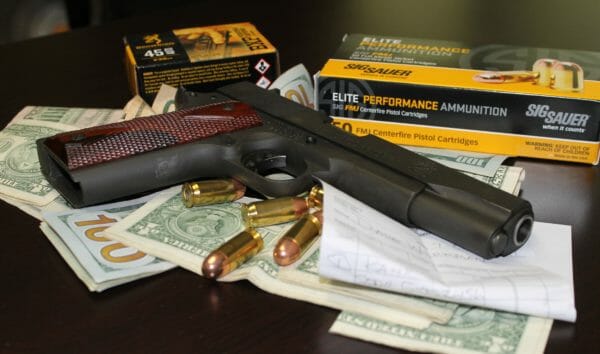
The controversial gun and ammunition special tax adopted by the Seattle, Washington City Council in July 2015 has failed once again to deliver the goods: big bucks revenue and a lower number of homicides.
Indeed, according to a story reported in January by Seattle’s KING 5 News—the local NBC affiliate—violent crime in the city “reached a 15-year high in 2022, surpassing the record set in 2021.”
This revelation came in the Seattle Police Department’s annual crime report.
The tax was supported by then-Councilman Bruce Harrell, who is now the mayor. It was rammed through with a revenue forecast of between $300,000 and $500,000 and it has never come close to that figure. It was sold to the public as a way to raise funds for anti-violence efforts, which obviously haven’t worked out either because the number of homicides in the city since 2016—the first full year of the tax—has more than doubled.
City leaders have remained silent, except for Harrell, who has tried to blame guns and sought to have the Democrat-controlled Legislature repeal Washington State’s model firearms preemption statute, which prevents him and other anti-gun mayors from establishing their own gun control regulations.
According to the latest gun tax revenue figure from the city, last year Seattle’s gun tax brought in $134,322. This was down from the $165,416 collected during 2021, and even farther down from the $184,836 collected in 2020, the year the city was rocked by violent protests and the takeover of six square blocks on the city’s Capitol Hill neighborhood, which made embarrassing national headlines as the “CHOP” (Capitol Hill Occupied Protest) Zone for about a month in the spring and early summer that year. Residents of the city saw their police department demoralized and embarrassed for having to abandon the East Precinct headquarters, and manpower began shrinking as scores of officers retired, quit or transferred to other agencies. Gun and ammunition sales obviously went up as alarmed citizens took responsibility for their own safety.
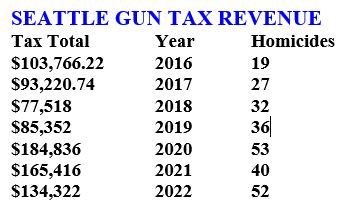
The story behind this monumental gun control failure goes back to the summer of 2015, when the council, prodded by then-Councilman Tim Burgess, adopted the gun tax, which collects $25 for the sale of each firearm and 5 cents for each centerfire cartridge or shotgun shell and 2 cents for each rimfire cartridge sold inside the city.
The tax was enough to force one of the two largest gun retailers in the city to pull out and move his business to another city in a neighboring county.
In the spring of 2016, this reporter sought information from Seattle on the first quarter gun tax revenues and the city refused to provide a figure, claiming it would reveal tax information about individual businesses. The request was modified to secure just a single revenue figure, and the city still stonewalled.
This correspondent, then senior editor of TheGunMag.com (formerly GUN WEEK), with support from the Second Amendment Foundation, sued the city for violating the state Public Records Act. In July 2017, a King County Superior Court judge agreed, and city was forced to provide the data. It was a win for the First Amendment and TheGunMag.com, and a loss for the gun tax proponents, revealing all the big talk from two years before had been just that, big talk. (The city has complied with my requests ever since.)
The first year (2016) revenue came to $103,766, and the year ended with 19 total homicides, including 11 committed with firearms, according to Seattle Police data. The revenue was disastrously lower than the Burgess forecast.

In 2017, the city collected an even worse $93,220, and posted 27 murders including 18 involving guns, and in 2018, the gun tax revenue had plummeted to the lowest figure of $77,518, while there were 32 slayings, including 13 involving firearms.
In 2019, Seattle’s gun tax revenue climbed back to $85,352 but the body count still crept upward with 36 killings including 18 committed with guns.
Then came 2020, the year of the riots and the COVID-19 pandemic panic, and it was a bloodbath. There were 53 murders in the city including 21 committed with firearms. Two of those fatal shootings happened in the CHOP Zone, and the victims were both young Black males.
In 2021, Seattle’s gun tax revenue started back down again, pulling in the aforementioned $165,000-plus, while police investigated 40 homicides. It was a welcome respite, but short-lived, as last year’s body count shot back up to 52.
Along the way, the Citizens Committee for the Right to Keep and Bear Arms blistered the city’s gun control failure.
There is even more proof the city’s gun control scheme has been a disaster. If this kind of performance had happened in the private sector, by now someone would have been fired.
Again, relying on Seattle Police data, in 2016 the police received 265 “shots fired” reports which left 62 people wounded. In 2017, there were 273 “shots fired” reports and 69 people were wounded. The next year—2018—saw a decline of shots fired reports to 233 with 67 people wounded, and in 2019, there were 235 shooting incidents and 79 people were wounded.
In 2020, police received 315 shooting complaints that produced 101 wounded victims, and in 2021, the number jumped again, with 438 shooting reports and 143 people wounded.
The number of shots fired reports for 2022 is staggering by comparison. There were 739 shooting reports, and 157 people were wounded.
There is no small irony in the fact that Seattle is the headquarters city for the Alliance for Gun Responsibility, a billionaire-backed gun prohibition group that stubbornly refuses to acknowledge its gun control crusade has been an utter failure. The Alliance financially backed two separate gun control initiative campaigns in Washington, passing I-594 in 2014 and I-1639 in 2018.
Many in the Second Amendment community say it is time to repeal the city’s gun and ammunition tax, and both state initiatives because the evidence is clear they have accomplished nothing other than to penalize law-abiding citizens.
About Dave Workman
Dave Workman is a senior editor at TheGunMag.com and Liberty Park Press, author of multiple books on the Right to Keep & Bear Arms, and formerly an NRA-certified firearms instructor.


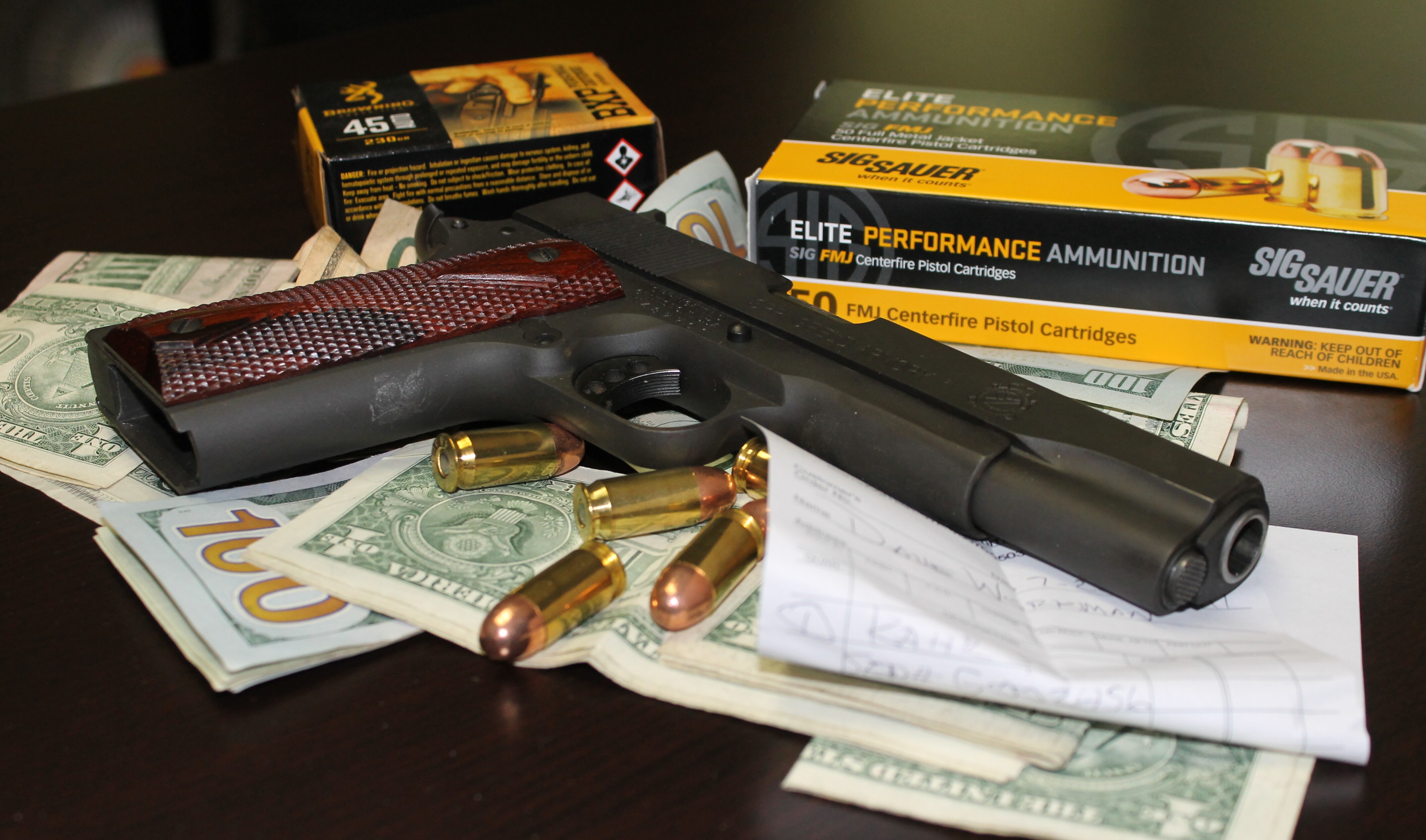

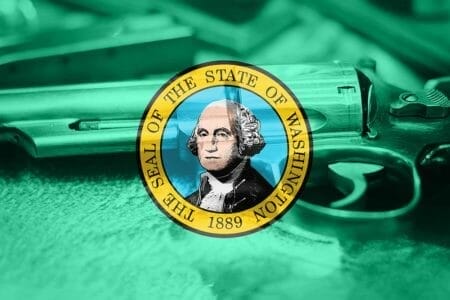
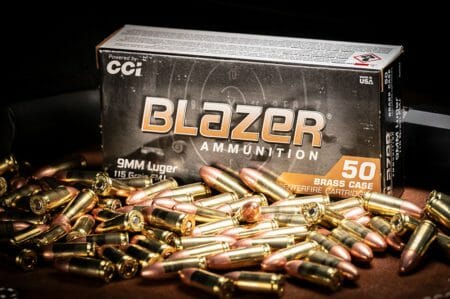
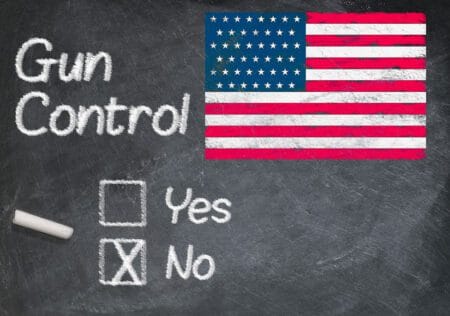

leftists/progressives will never admit that their policies have failed even with evidence of such. they will find someone or something to blame and it is never correct. they will also not blame the criminal(s) for the violence they commit, they blame law-abiding citizens who want to exercise a God given right. that is because they do not believe in God, the believe that they themselves are gods and should rule over us.
” A FREE PEOPLE OUGHT NOT ONLY BE ARMED AND DISCIPLINED, BUT THEY SHOULD HAVE SUFFICIENT ARMS AND AMMUNITION TO MAINTAIN A STATUS OF INDEPENDENCE FROM ANY WHO MIGHT ATTEMPT TO ABUSE THEM, WHICH WOULD INCLUDE THEIR OWN GOVERNMENT” George Washington January 8, 1790.
Best President ever!
Gun control while un Constitutional is also a failure,everytime.
You must have majored in business and economics! Move to the head of the class.
Thanks for reading and sharing this AMMOLAND report.
Dave, is that billionaire Bloomberg? I read billionaire a lot but no name.
Michael Bloomberg has financially supported two WA gun control initiatives, but big money has also come from Seattle-area elitists including Bill Gates, the late Paul Allen and Steve Ballmer.
Thanks for reading and sharing this AMMOLAND report.
What about that smarmy puke Nick Hanauer? Isn’t he still in there pulling inslee and ferguson’s strings with gates and ballmer?
last I knew he certainly was. Made of the same stuff.
amusing how few people ever add up the costs to see what they are paying. You DID miss one savings, though. SInce you are an Oregon resident you COULD have demanded the Washingtondealer NOT charge you tax as it would have been an interstate sale. Next time…..
Who’s an Oregon resident? Certainly not me.
Thanks for reading and sharing this AMMOLAND report.
I believe you are incorrect on the sales tax. By buying the trailer at the dealer in WA, it is not an interstate sale and the tax must be paid. If he had ordered the trailer online or over the phone for delivery to OR then the tax would be exempt. In person sales are always subject to the local sales tax. Also, some states are now collecting sales tax on interstate sales.
Used to be merchants had to collect sales tax from customers if the merchant has a physical presence in state of customer’s residence. Think it was expanded several years ago. In any case you were supposed to mail in sales tax to local taxing authority if you were not taxed at the sale.
When I’ve bought used cars, had to transfer title through tax office – at which time they collected state sales tax along with title fee and registration.